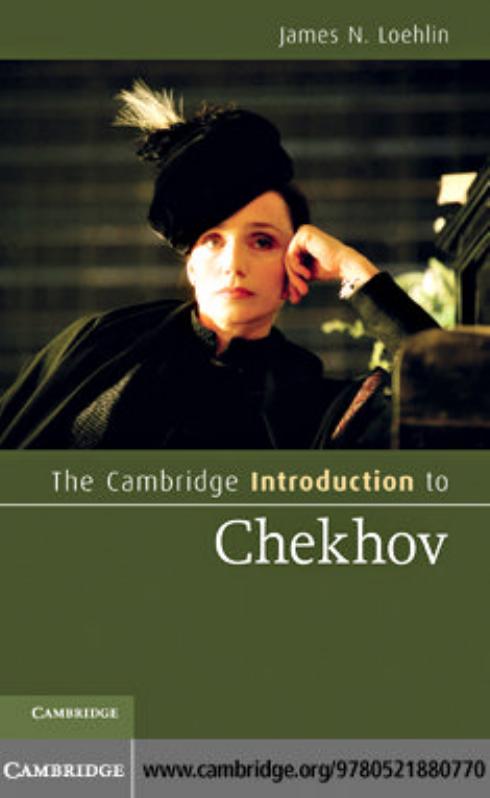The Cambridge Introduction to Chekhov by James N. Loehlin

Author:James N. Loehlin
Language: eng
Format: epub, pdf
Publisher: Cambridge University Press
Published: 2010-03-06T16:00:00+00:00
“My Life”
“My Life” was the only other story Chekhov wrote in 1896, and it shares with “The House with the Mezzanine” a concern about how to live, as well as a hero who is a principled dropout. It is one of the longest and most personal of Chekhov’s prose works, revisiting the provincial vulgarity of his upbringing.
Chekhov mixed longer and shorter pieces together throughout his career – his one full-length novel, The Shooting Party, appeared in 1884 – but in general his stories grew fewer and longer. In addition to “The Steppe” and “The Duel” (1888 and 1891), his longest works include three stories from the Melikhovo period: “The Story of an Unknown Man” (completed in 1893), “Three Years” (1895), and “My Life” (1896). The first of these, about a revolutionary working under cover as a servant, has a melodramatic, Dostoevskian feeling; it is the only one of Chekhov’s major works to take place in Dostoevsky’s usual setting of Petersburg. “Three Years” explores the world of Moscow’s merchant classes, drawing on Chekhov’s father’s years working in a warehouse. “My Life” focuses on the dreary provinciality of a southern Russian city very like Chekhov’s hometown of Taganrog. In their different milieux, all three stories ask, but don’t clearly answer, questions about how Russians should live their lives. Interestingly, as Richard Pevear points out, all three stories end with the protagonist looking after a helpless orphaned girl, whose future must be provided for.20 “The Story of an Unknown Man” ends thus: “Sonya was sitting on the table and looking at me attentively, without blinking, as if she knew her fate was being decided.”21 Evidently, in Chekhov’s view, his characters’ failures to find a better way of living do not free them from the obligation to do so.
Like “The House with the Mezzanine,” “My Life” is narrated by its protagonist, a young man of noble birth with the unusual name of Misail (his sister is named Cleopatra). Their father, the local architect, is a petty despot, like Chekhov’s own father and many fathers in his works. In the story’s first episode, he beats Misail with an umbrella after the young man has lost his job for the ninth time. Unwilling to trade on his social position and take the fast track into a bureaucratic sinecure, Misail decides to work as a manual laborer, digging ditches, painting houses, assisting a butcher. Taking a high-minded Tolstoyan attitude, he declares that “Unwealthy and uneducated people earn their crust of bread by physical labor, and I see no reason why I should be an exception.”22 He finds this life honest and satisfying, and it awakens him to the plight of the working classes: in one of the more openly political statements in Chekhov, Misail observes that serfdom may have been abolished, but capitalism is taking its place.
Misail’s status as a laborer creates an acute social embarrassment for his family and the town. Eventually he is summoned by the local governor, whom he visits after a day working in the slaughterhouse, reeking of meat and blood.
Download
The Cambridge Introduction to Chekhov by James N. Loehlin.pdf
This site does not store any files on its server. We only index and link to content provided by other sites. Please contact the content providers to delete copyright contents if any and email us, we'll remove relevant links or contents immediately.
| Books & Reading | Comparative Literature |
| Criticism & Theory | Genres & Styles |
| Movements & Periods | Reference |
| Regional & Cultural | Women Authors |
4 3 2 1: A Novel by Paul Auster(12354)
The handmaid's tale by Margaret Atwood(7727)
Giovanni's Room by James Baldwin(7301)
Asking the Right Questions: A Guide to Critical Thinking by M. Neil Browne & Stuart M. Keeley(5740)
Big Magic: Creative Living Beyond Fear by Elizabeth Gilbert(5725)
Ego Is the Enemy by Ryan Holiday(5391)
The Body: A Guide for Occupants by Bill Bryson(5065)
On Writing A Memoir of the Craft by Stephen King(4915)
Ken Follett - World without end by Ken Follett(4705)
Adulting by Kelly Williams Brown(4552)
Bluets by Maggie Nelson(4534)
Eat That Frog! by Brian Tracy(4499)
Guilty Pleasures by Laurell K Hamilton(4422)
The Poetry of Pablo Neruda by Pablo Neruda(4079)
Alive: The Story of the Andes Survivors by Piers Paul Read(4009)
White Noise - A Novel by Don DeLillo(3990)
Fingerprints of the Gods by Graham Hancock(3979)
The Book of Joy by Dalai Lama(3959)
The Bookshop by Penelope Fitzgerald(3827)
